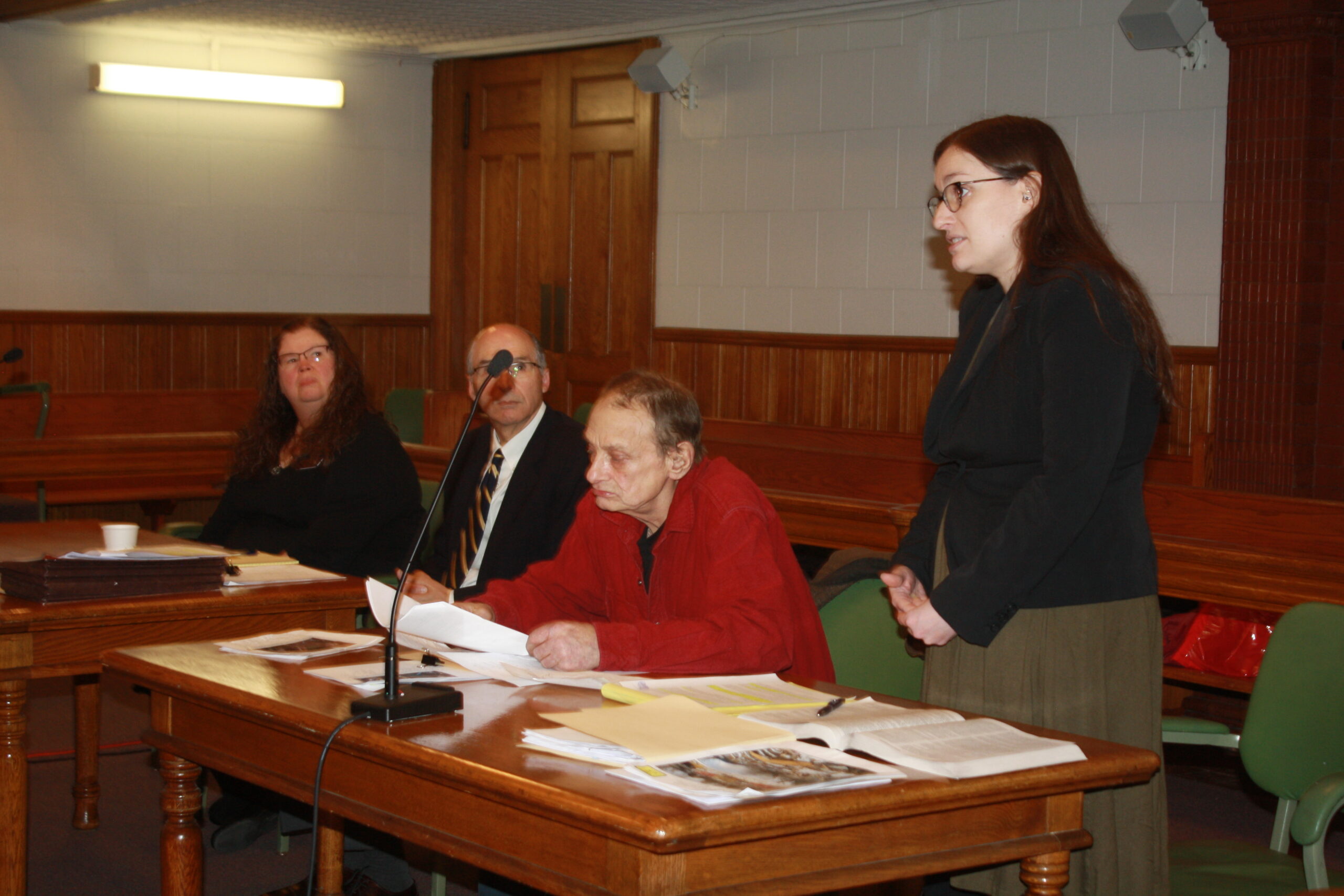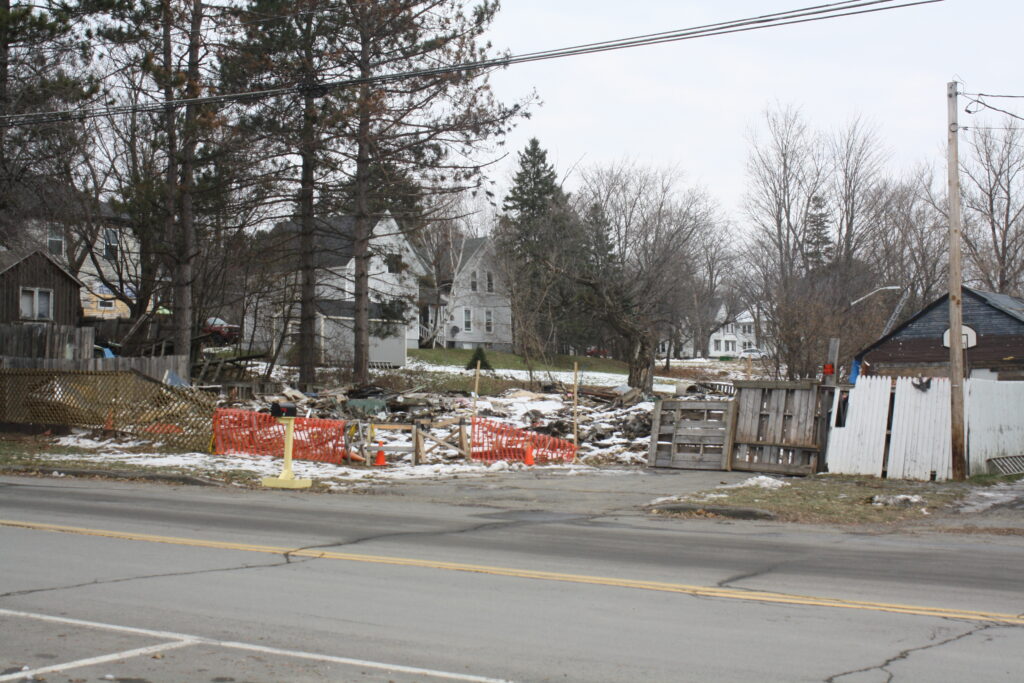
CARIBOU, Maine – Caribou officials appeared in court Friday and asked a judge to order the owner of a burned-out house to reimburse the city for cleaning up the remains of the structure.
In April, the city sued John Barretto, who owned a home at 15 Prospect St. that code enforcement condemned earlier this year. City councilors declared the home a dangerous and nuisance property last year after receiving numerous complaints about unsafe living conditions. Officials hoped that a judge’s ruling would force Barretto to repair or demolish the home and eliminate one of several burned-out and blighted properties in the city’s downtown.
Then Barretto’s home burned in a September fire, changing the course of the lawsuit. Though Barretto has begun removing debris from the fire, the city wants to do the work and get rid of a property officials consider too blighted and dangerous.
On Friday, Caribou City Manager Penny Thompson and the city’s attorney, Richard Solman, appeared in Caribou Superior Court and asked Justice Stephen Nelson to uphold the city’s dangerous and nuisance property declaration in accordance with state statute.
“He [Barretto] has done good work to clean up and take what he can to the landfill, but it’s still unsafe and there are health and safety issues,” Thompson said.
For instance, debris such as burned floorboards, nails and roof shingles remain on the property. Much of the home’s foundation also survived both the fire and demolition work from an excavator that firefighters brought in to access the home more effectively. That means anyone who trespasses on the property, including children, could fall into the exposed foundation, Thompson argued.

Barretto questioned Thompson on how far into the ground his remaining foundation went. Thompson said she has not taken measurements and could not approximate a potential height. Barretto estimated that the foundation goes two feet into the ground, which he does not consider a dangerous height.
Barretto’s attorney, Hilary Fernald, argued that Thompson’s reasoning did not clarify how someone could potentially fall into Barretto’s foundation.
While on the witness stand, Barretto said he has installed fencing to discourage passersby from entering and wants a contractor to put up a permanent fence. Barretto has also put up “No Trespassing” signs. He has been living in his garage and has not seen trespassers, he said.
“No one has gotten hurt on my property,” Barretto said. “I want to salvage what I can so that I can build a smaller house in the back of my property.”
Prior to the fire, Barretto said, he had replaced the home’s front entrance, installed new porch beams and bought a new generator for his living room.
His actions were in response to an inspection by former code enforcement officer Ken Murchison last December. Murchison’s report stated that Barretto’s home had no electricity and electrical wires hung from walls. Some rooms had no windows, which presented a fire hazard, and occupants used improperly installed wood stoves for cooking and heating, Murchison said.
Barretto did not respond to demands that he present a plan for fixing his property within 30 days of the city’s notice of condemnation last December, according to Murchison. Though Barretto contacted the city in February and made repairs afterwards, the city still took issue with the speed in which he did so.
Barretto stated that it could take him another year to finish cleaning debris, especially during the winter months. Barretto, who is 65, said he has a limited income and wants the city to let him perform the work on his own time instead of paying for the city’s hired contractor.
Solman and Thompson argued that Barretto’s timeframe would prolong issues of public health and safety. With winter approaching, rodents such as rats and mice could find refuge in the debris and become a nuisance to nearby properties, Thompson said.
Nelson stated that it will likely take weeks for him to announce his decision in the case. He did not specify how many weeks.
If Nelson rules in favor of the city, Barretto would have 30 days following the ruling to remove the remaining debris from his property, Solman said.







